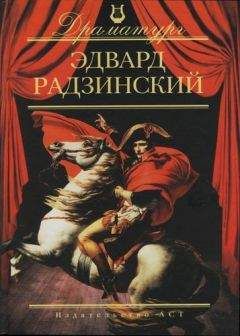Илья Франк - Английский язык с Р.Л. Стивенсоном. Остров сокровищ
Острова Сокровищ); and seeing from my position that I was already under its
influence (и видя со своего положения, что я был уже под его влиянием), I
preferred to leave Haulbowline Head behind me (я предпочел оставить
Буксирную голову за собой = миновать), and reserve my strength for an attempt
to land upon the kindlier-looking Cape of the Woods (и сохранить силы для
попытки пристать к выглядевшему более приветливо Мысу Леса; kind —
добрый, любезный, сердечный).
2. There was a great, smooth swell upon the sea (на море была большая мерная
зыбь; smooth — плавный, спокойный, ровный; swell — выпуклость, волнение,
зыбь). The wind blowing steady and gentle from the south (ветер дул постоянно
Мультиязыковой проект Ильи Франка www.franklang.ru
504
и легко с юга; gentle — знатный, родовитый, благородный; великодушный;
легкий, слабый /о ветре, наказании, характере и т. п./), there was no
contrariety between that and the current (между ним и течением не было
противоречия = ветер дул в ту же сторону, что и течение), and the billows rose
and fell unbroken (большие волны поднимались и опускались неразбитыми =
равномерно).
3. Had it been otherwise (будь это иначе), I must long ago have perished (я бы
уже давно погиб); but as it was (но и как это было = но и при таком ветре), it is
surprising how easily and securely my little and light boat could ride
(удивительно, как легко и спокойно моя маленькая и легкая лодка плыла).
Often, as I still lay at the bottom (часто, лежа на дне), and kept no more than an
eye above the gunwale (и держа не больше, чем глаз над планширом = лишь
поглядывая по сторонам), I would see a big blue summit heaving close above me
(я видел большую голубую вершину /волны/, нависавшую низко надо мной;
to heave — подниматься, вздуваться); yet the coracle would but bounce a little
(и все-таки челнок только подпрыгивал немного), dance as if on springs
(танцевал, словно на пружинах), and subside on the other side into the trough as
lightly as a bird (и опускался с другой стороны /плавно/ на подошву /волны/,
словно птица; to subside — падать, оседать, опускаться; trough — корыто;
впадина, подошва волны).
gentle [Gentl] contrariety [kOntrq`raIqtI] gunwale [gAnl] trough [trOf]
1. I remembered what Silver had said about the current that sets northward
along the whole west coast of Treasure Island; and seeing from my position
that I was already under its influence, I preferred to leave Haulbowline Head
behind me, and reserve my strength for an attempt to land upon the kindlier-
looking Cape of the Woods.
Мультиязыковой проект Ильи Франка www.franklang.ru
505
2. There was a great, smooth swell upon the sea. The wind blowing steady and
gentle from the south, there was no contrariety between that and the current,
and the billows rose and fell unbroken.
3. Had it been otherwise, I must long ago have perished; but as it was, it is
surprising how easily and securely my little and light boat could ride. Often,
as I still lay at the bottom, and kept no more than an eye above the gunwale, I
would see a big blue summit heaving close above me; yet the coracle would
but bounce a little, dance as if on springs, and subside on the other side into
the trough as lightly as a bird.
1. I began after a little to grow very bold (мало-помалу я стал очень смелым),
and sat up to try my skill at paddling (и сел прямо, чтобы испытать мое умение
гребли = попробовал было грести; to paddle). But even a small change in the
disposition of the weight (но даже маленькое изменение в расположении
/моего/ веса) will produce violent changes in the behaviour of a coracle
(вызывало сильные изменения в поведении моего челнока). And I had hardly
moved before the boat (едва /только/ я двинулся вперед лодки), giving up at
once her gentle dancing movement (теряя = изменяя сразу ее мягкое танцующее
движение), ran straight down a slope of water so steep (и /она/ стремительно
сошла вниз со склона воды = сорвалась с гребня волны так резко) that it made
me giddy (что у меня закружилась голова), and struck her nose, with a spout of
spray (и ударила своим носом /в воду, подняв/ сноп брызг; spout — столб,
струя, каскад), deep into the side of the next wave (/погрузив его/ глубоко в
бок следующей волны).
2. I was drenched and terrified (я вымок до нитки и был напуган; to drench —
насквозь промачивать), and fell instantly back into my old position (и сразу
принял свое старое положение; to fall back — падать назад, отступать),
whereupon the coracle seemed to find her head again (после чего челнок,
Мультиязыковой проект Ильи Франка www.franklang.ru
506
кажется, нашел снова свою голову = опомнился), and led me as softly as before
among the billows (и понес меня так же мягко среди волнами, как и прежде; to
lead — вести, проводить, направлять). It was plain she was not to be interfered
with (было ясно, что ему лучше не мешать), and at that rate, since I could in no
way influence her course (и в таком случае, так как я не могу никоим образом
влиять на его курс), what hope had I left of reaching land (как же я мог
надеяться: «какая надежда была мне оставлена» достигнуть суши; hope —
надежда)?
produce [`prOdjHs] behaviour [bI`heIvIq] terrified [`terIfaId] whereupon
[weqrq`pOn]
1. I began after a little to grow very bold, and sat up to try my skill at
paddling. But even a small change in the disposition of the weight will produce
violent changes in the behaviour of a coracle. And I had hardly moved before
the boat, giving up at once her gentle dancing movement, ran straight down a
slope of water so steep that it made me giddy, and struck her nose, with a
spout of spray, deep into the side of the next wave.
2. I was drenched and terrified, and fell instantly back into my old position,
whereupon the coracle seemed to find her head again, and led me as softly as
before among the billows. It was plain she was not to be interfered with, and
at that rate, since I could in no way influence her course, what hope had I left
of reaching land?
1. I began to be horribly frightened (я начал ужасно пугаться: «быть ужасно
испуганным»), but I kept my head, for all that (но я сохранил присутствие духа:
«голову», несмотря на все это). First, moving with all care (прежде всего,
двигаясь со всей осторожностью = как можно аккуратнее), I gradually baled
Мультиязыковой проект Ильи Франка www.franklang.ru
507
out the coracle with my sea-cap (постепенно я вычерпал воду из челнока своей
матросской шапкой); then getting my eye once more above the gunwale (затем,
поднимая мой глаз/взгляд = взглянув снова над планширом), I set myself to
study how it was she managed to slip so quietly through the rollers (я принялся
исследовать, как это ему удается скользить так легко по волнам).
2. I found each wave, instead of the big, smooth glossy mountain it looks from
shore (я обнаружил, что каждая волна, вместо большой ровной блестящей
горы, /как/ она выглядит с берега), or from a vessel's deck (или с палубы
судна), was for all the world like any range of hills on the dry land (является
похожей во всех отношениях на гряду холмов на суше: «сухой земле»), full of
peaks and smooth places and valleys (полную пиков, ровных мест и долин). The
coracle, left to herself, turning from side to side (челнок, предоставленный
самому себе, поворачивался из стороны в сторону), threaded, so to speak, her
way through these lower parts (прокладывал свой путь, если можно так сказать,
через эти низкие части = долины; to thread — пронизывать, пробираться),
and avoided the steep slopes and higher, toppling summits of the wave (и избегал
крутые склоны и более высокие, грозящие падением вершины волны; to
topple — валиться, падать /головой вниз/; опрокидывать(ся); грозить
падением).
1. I began to be horribly frightened, but I kept my head, for all that. First,
moving with all care, I gradually baled out the coracle with my sea-cap; then
getting my eye once more above the gunwale, I set myself to study how it was
she managed to slip so quietly through the rollers.
2. I found each wave, instead of the big, smooth glossy mountain it looks from
shore, or from a vessel's deck, was for all the world like any range of hills on
the dry land, full of peaks and smooth places and valleys. The coracle, left to
herself, turning from side to side, threaded, so to speak, her way through
Мультиязыковой проект Ильи Франка www.franklang.ru
508
these lower parts, and avoided the steep slopes and higher, toppling summits
of the wave.
1. 'Well, now (итак),' thought I to myself (подумал я про себя), 'it is plain I must
lie where I am (ясно, что я должен лежать, где я есть), and not disturb the
balance (и не нарушать равновесия); but it is plain, also, that I can put the paddle
over the side (но также ясно, что я могу опустить за борт весло; to put over —
отложить, переправить), and from time to time, in smooth places (и время от
времени, в ровных местах), give her a shove or two towards land (дать ей
толчок или два = пару раз подгрести к суше).' No sooner thought upon than
done (только я подумал об этом, так и сделал). There I lay on my elbows, in the
most trying attitude (я лежал на локтях в очень мучительном положении; to try
— пытаться; испытывать; мучить, раздражать; утомлять, удручать),




